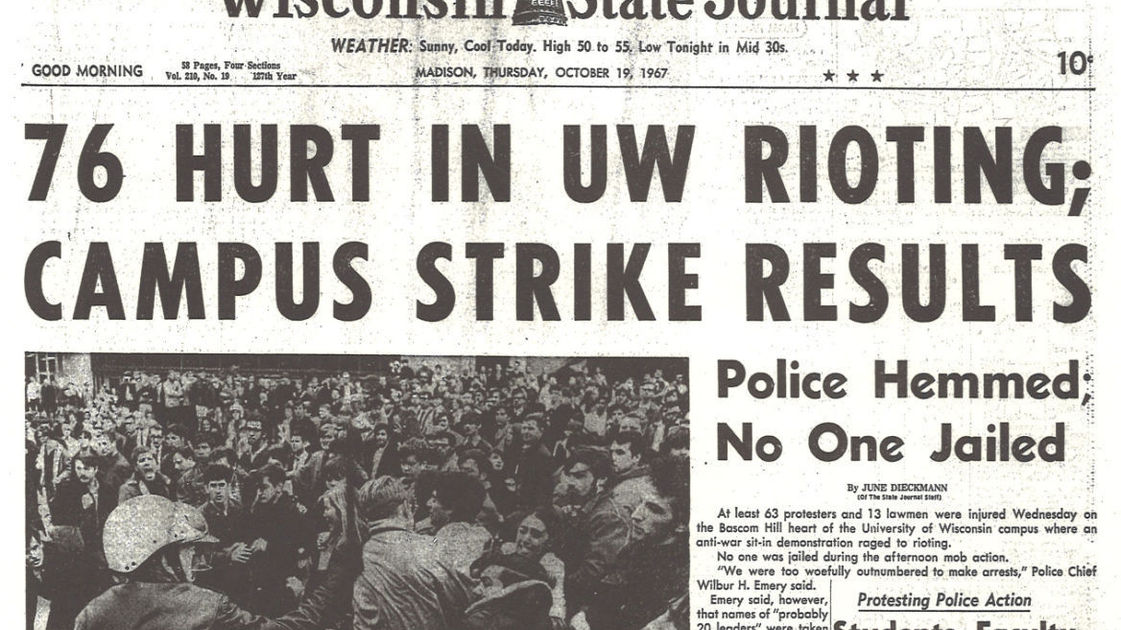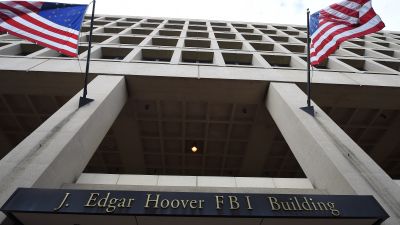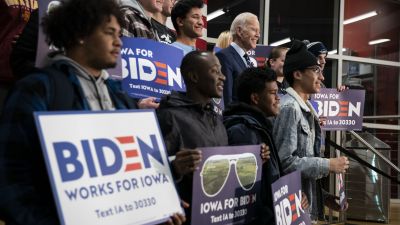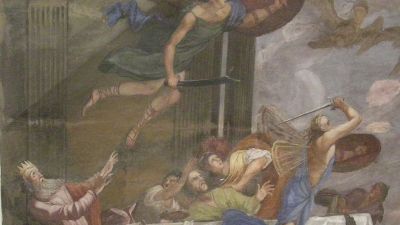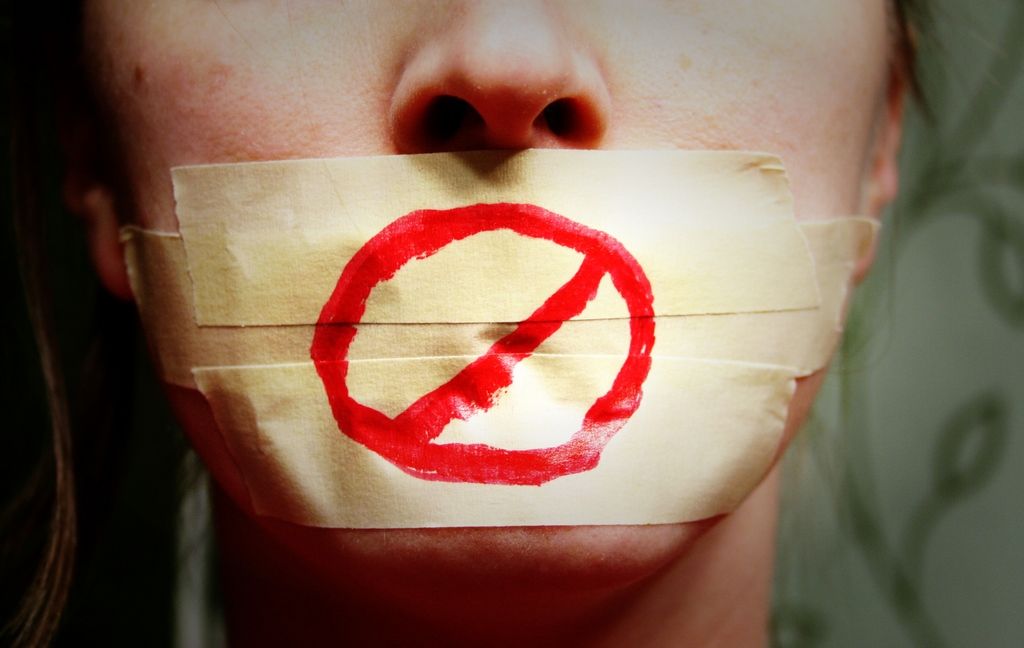
(Photo by Jennifer Moo/ flickr CC 2.0)
This Q&A is part of Sarah Jaffe’s series Interviews for Resistance, in which she speaks with organizers, troublemakers and thinkers who are doing the hard work of fighting back against America’s corporate and political powers. This interview has been edited for length and clarity.
The battles over “free speech” on campus have loomed large in the era of Trump, with conservative provocateurs invited to campuses across the country only to claim that they are being silenced when students protest them. Just this week white nationalist Richard Spencer is holding a “free speech” event at a campus in Florida — but only he can choose the press that covers it. In one of the latest salvos in the battle to claim “freedom of speech” for the right, Scott Walker and his allies in Wisconsin are pushing a policy that would suspend or expel students for protesting in ways the university deems infringe on the free speech of another. Thomas Gunderson is an undergraduate student at the University of Wisconsin—Madison and is organizing against the policy with the group OUR Wisconsin Revolution.
Sarah Jaffe: The University of Wisconsin and Scott Walker’s appointees there made headlines again last week with some sort of “free speech” policy. Can you explain that?
Thomas Gunderson: The big issue with it is that it is complicated to explain. The moral of the story is that it essentially threatens to suspend and expel students who will violate a new set of really obscure and vague policies that the board of regents will be proposing.
SJ: So you don’t know what are the policies that you could potentially be already violating?
TG: Pretty much. That is the really scary part. They promote it as a bill that is done to protect freedom of speech and freedom of expression, while the obscure language really just chills the student body. Many think this is the real intention, given that really the only thing concrete about it is that students will be suspended and students will be expelled.
SJ: Was there a particular incident on the University of Wisconsin’s campus that made this seem necessary to the regents, or is this a response to the national feelings that everybody is having about campus free speech?
TG: This is really just about having a corporately captured state legislature and now, at this point, board of regents in Wisconsin. The board of regents policy is the companion to the Campus Free Speech Act, which comes out of the Barry Goldwater Institute from Arizona, a hard right libertarian-esque type of think tank.
SJ: What would that act do?
TG: That was pretty much giving the board of regents the go-ahead to make a new set of policies regarding academic freedom and freedom of expression. Which is also just a huge irony. In Wisconsin, they are acting as if the University of Wisconsin—Madison Board of Regents has been a stalwart of academic freedom when it has recently removed tenure and made the university a more exclusive place by raising the price of it.
SJ: This is all happening in the context of ongoing changes and attacks on the university. Could you talk a little bit more about those over the last few years?
TG: It was around two years ago that they made pretty sweeping changes to what was once really sound tenure protection at the university. It caused a major backlash among faculty and there has been a huge problem with retention since, as well as contributing to rising prices. It has really been an all-out assault on what once made University of Wisconsin system special.
SJ: Yes, I remember when Walker tried to change the Wisconsin Idea. Can you explain to people what that is?
TG: Yes. That was really a sneaky Walker move where he tried to slide in language saying, as in the institution’s tradition, the goal of the university wasn’t to promote the sifting and winnowing the pursuit of truth, and instead to change the language to saying that the university’s goal is to apply a sound workforce for Wisconsin.
SJ: Walker’s attacks on the university have gone back to when he was first elected, but also, the university has been the source of a lot of the protests against him, going back to the Teaching Assistants Association and the Wisconsin Uprising back in 2011.
TG: Correct.
SJ: One the one hand, we have something very specific here with Walker’s specific motivations toward the university system. On the other hand, we are seeing similar attacks on public universities around the country and we are seeing this particular obsession with student protest being somehow antithetical to free speech nationally. I wonder if you could talk about where you see these attacks on the university and on free speech in the broader national context.
TG: It is especially annoying that they are just trying to do this in the UW system right now, because just in the recent year they have politically attacked both professors and students. Members of the state legislature have openly attacked professors and students whose expression, whose free speech they have found disagreeable.
For anything like a free speech legislation to have any sort of legitimacy to it, the restrictions upon free speech have to necessarily be viewpoint and value neutral restrictions. That this would be the case in the UW system at the current moment is just completely unrealistic. I think that is what has many students, at least in my circles, very concerned about this, that they will be people who are targeted. Particularly a lot of minority groups at the university, those that are here are really worried about it.
SJ: In the moment of Trump, Wisconsin of course has been living with Scott Walker for a while now, so you have seen a lot of the things that are now being moved to the national level there.
TG: Right. Just another really interesting timing thing of it is that as we speak UW—Madison is commemorating the 50th anniversary of the student Vietnam protests here on campus. If these policies were around then, those students wouldn’t have only been pepper sprayed, but they also would have been possibly getting suspended or expelled or worse.
SJ: Since we are talking about this and the work that people are doing on campus being potentially under threat, talk about what OUR Wisconsin Revolution has been doing on campus.
TG: We have a petition circulating that everyone is welcome to sign saying they support the students and their right to freedom of expression and speech. We are pointing out that the language of this legislation is too vague and we believe will be used to target already marginalized students. We are going to build up some student awareness and, hopefully, be able to make something happen when the board of regents is actually at the University of Wisconsin Madison in these coming weeks.
SJ: How can people keep up with you online?
TG: We have Facebook pages for both the student chapter and the state affiliate, and county affiliate. Also, we have a webpage, as well: www.OURwisconsinrev.com.
Interviews for Resistance is a project of Sarah Jaffe, with assistance from Laura Feuillebois and support from the Nation Institute. It is also available as a podcast on iTunes. Not to be reprinted without permission.

